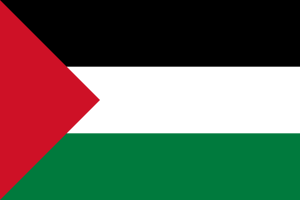Language/Hijazi-arabic/Vocabulary/Education
Hi Hijazi Arabic learners! 😊
In this lesson, we will focus on Hijazi Arabic vocabulary related to education. Education is an important aspect of Hijazi culture, and it is essential to know some basic vocabulary related to it if you want to understand Hijazi people better. We will also dive into some cultural information and interesting facts along the way, so buckle up and let's get started!
Introduction[edit | edit source]
In Hijazi Arabic, the word for education is التعليم (al-ta'leem). Education in Saudi Arabia is free for all citizens, and the government provides free education up to the university level. The education system in Saudi Arabia is divided into three levels: primary, intermediate, and secondary. Education for girls and boys is generally segregated in the country, and girls attend single-sex schools up to the university level.
Don't hesitate to look into these other pages after completing this lesson: Drinks & How to Say Hello and Greetings.
Basic Vocabulary[edit | edit source]
Below is a list of basic vocabulary related to education in Hijazi Arabic. The vocabulary includes common words used in everyday conversations, in classrooms, and in the education system.
| Hijazi Arabic | Pronunciation | English |
|---|---|---|
| الطالب | al-taalib | student (male) |
| الطالبة | al-taaliba | student (female) |
| المعلم | al-mu'allim | teacher (male) |
| المعلمة | al-mu'allima | teacher (female) |
| الدراسة | al-darsa | study |
| الكتاب | al-kitab | book |
| الصف | al-saf | class |
| الجدول الزمني | al-jadwal al-zamani | timetable (school) |
| الامتحان | al-imtehan | examination |
| النتيجة | al-natija | result |
| الشهادة | al-shahada | certificate |
- Dialogue:
- Person 1: مرحبا، كيف حالك؟ (Marhaba, kayf halik?) (Hello, how are you?) - Person 2: الحمد لله، بخير. هل تدرس في المدرسة؟ (Alhamdulilah, bikhayr. Hal tadrosu fi almadrassa?) (I'm fine, thank you. Do you study in school?) - Person 1: نعم، أنا طالب في الصف الثاني عشر. (Naam, ana taalib fi al-saf al-thani 'ashar) (Yes, I'm a student in the twelfth grade.)
Advanced Vocabulary[edit | edit source]
Here are some advanced words that you might encounter in higher education or specialized fields:
| Hijazi Arabic | Pronunciation | English |
|---|---|---|
| الكلية | al-kulliyah | college |
| الجامعة | al-jami'ah | university |
| الدرس الجامعي | al-dars al-jami'i | university lecture |
| الكلية التقنية | al-kulliyah al-taqaniyah | technical college |
| الأكاديمية | al-akadimiya | academy |
| الأستاذ الجامعي | al-ustadh al-jami'i | university professor |
- Dialogue:
- Person 1: هل انت طالب في الجامعة؟ (Hal anta taalib fi al-jami'ah?) (Are you a student in the university?) - Person 2: لا، أنا أستاذ جامعي في الكلية. (La, ana ustadh jami'i fi al-kulliyah) (No, I'm a university professor in the college.)
Cultural Information[edit | edit source]
Education is highly valued in Hijazi culture, and many Saudis view education as a means of social mobility. Education is also important from a religious perspective, as Muslims are encouraged to seek knowledge throughout their lives. Saudis follow the traditional Islamic curriculum in many of their schools and universities, which includes taught both secular and religious subjects. Moreover, Saudis have a strong culture of memorization, and many students in the country memorize the entire Quran during their education.
Interesting Facts[edit | edit source]
- The literacy rate in Saudi Arabia is one of the highest in the Arab world, with around 98 percent of the population being able to read and write. - The Saudi government allocates a significant amount of its budget to education, with more than 25 percent of the country's budget dedicated to education and training. - The King Abdullah University of Science and Technology (KAUST) in Saudi Arabia is one of the world's leading research universities and has collaborations with many major universities around the world.
To improve your Hijazi Arabic Vocabulary, you can also use the Polyglot Club website. Find native speakers and ask them any questions!
Sources[edit | edit source]
- Education in Saudi Arabia
- Saudi Arabia - Education
- King Abdullah University of Science and Technology

